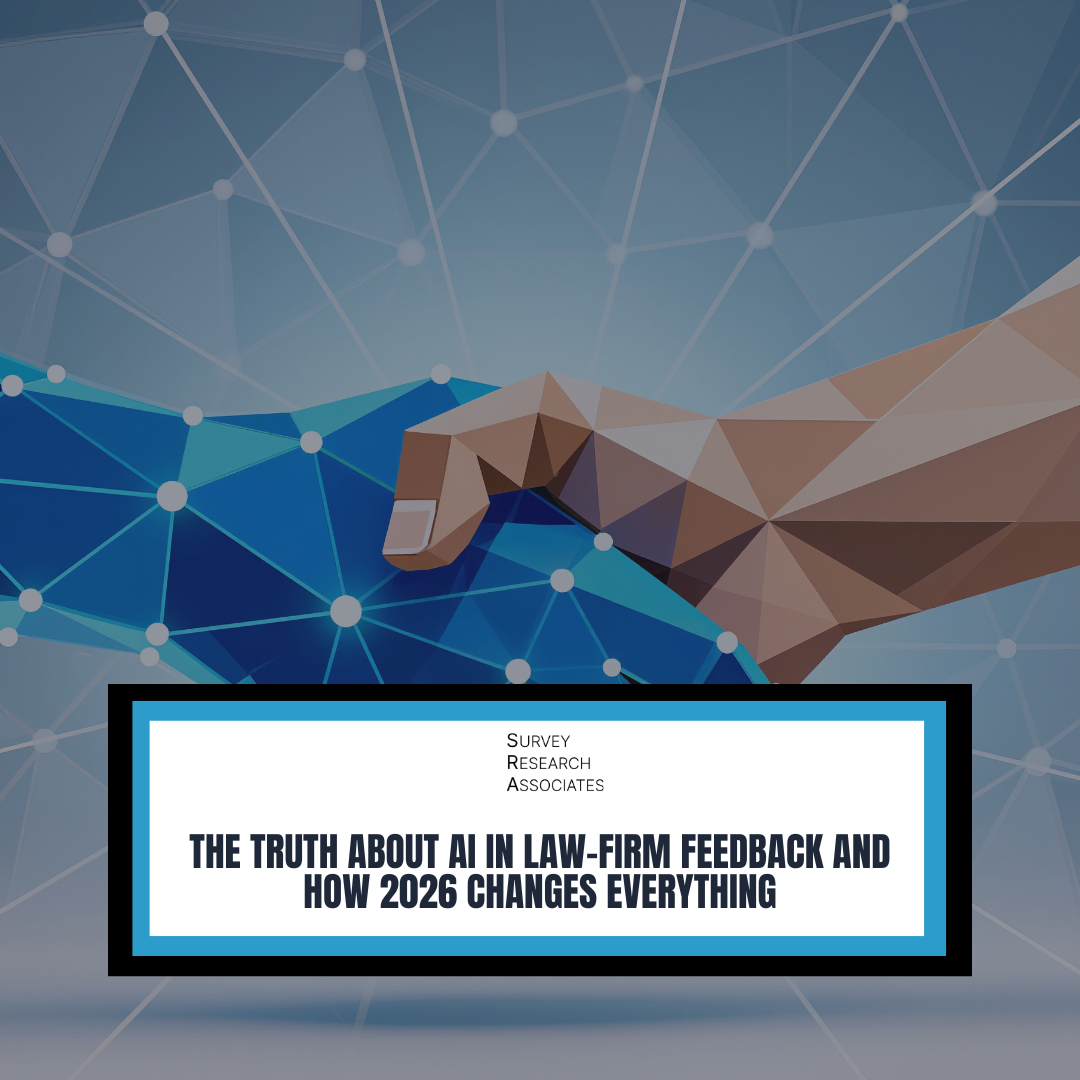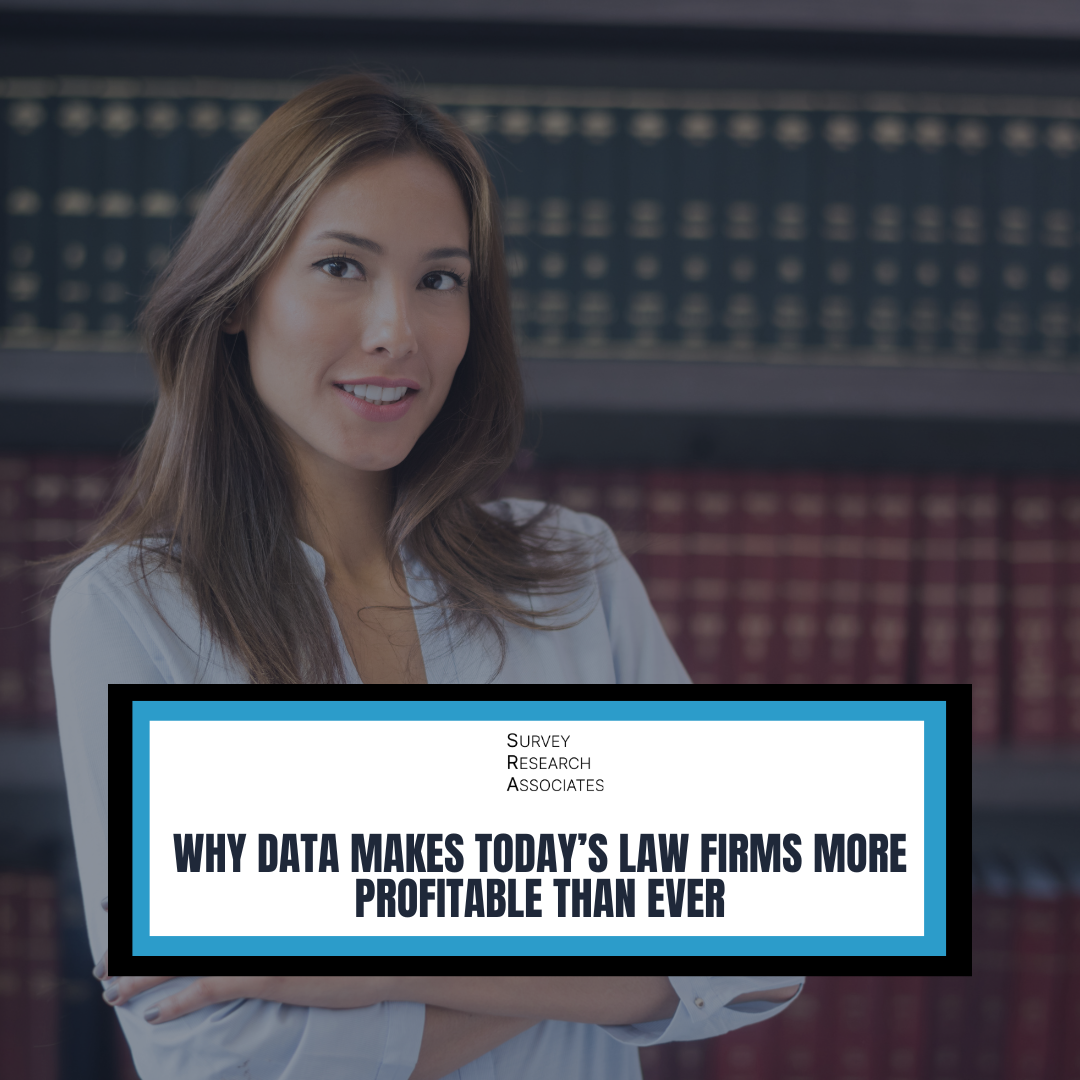The associate paused before closing her office door.
She had just come out of her annual review. The partner said she “did good work” but didn’t elaborate. Her colleague, who started at the same time, walked out of his review with a clear roadmap for advancement: lead a client pitch, take on more trial prep, aim for partnership track in three years.
Same level. Same effort. Different outcomes.
Because feedback wasn’t delivered fairly, one associate walked away with direction, while the other walked away with doubt.
At Survey Research Associates (SRA), we’ve seen this story repeat itself across law firms. Reviews often carry more weight than anyone admits. They shape who feels included, who grows, and who leaves. And when bias—conscious or unconscious—slips into the process, fairness suffers.
That’s why we believe fairness starts with feedback.
Where bias shows up in reviews
Naturally, partners don’t intend to exclude. But subtle patterns creep in:
- Some associates receive specific guidance, while others get vague comments.
- Women and lawyers of color are more likely to hear personality-based notes (“be more confident”) rather than skill-based coaching.
- High-profile assignments and stretch opportunities sometimes go to the same people again and again.
By the way, this isn’t just about fairness—it’s about performance. When half the team walks away from reviews without clarity, the whole firm loses future leaders.
What inclusive feedback looks like
Inclusive review processes aren’t complicated. They simply create consistency, clarity, and accountability across every evaluation. At SRA, we help firms design systems that:
- Standardize criteria. Associates get measured against clear expectations, not shifting partner preferences.
- Focus on behaviors, not traits. Feedback shifts from “be more assertive” to “speak up in team meetings twice a week.”
- Document patterns. Firms track who gets coaching and opportunities, ensuring no one gets overlooked.
- Train reviewers. Partners learn to spot bias in their language and redirect toward actionable, fair guidance.
Besides, when associates see fairness in the process, they trust the outcomes—even if the message is tough.
Why fairness builds inclusion
You know what really builds inclusion? It’s not slogans or diversity reports. It’s the daily experience of being treated equitably.
When associates from every background receive feedback they can act on, they feel seen. They believe their growth depends on effort, not politics. They develop the confidence to stay and thrive in the firm.
That’s why inclusive review processes aren’t just a DEI initiative. They are a performance strategy.
The opportunity for law firms
Normally, firms look at reviews as an administrative task. But we’ve watched firms transform when they treat reviews as a leadership moment.
Partners start speaking with clarity. Associates grow faster. Retention improves. And the culture shifts—subtly but powerfully—toward fairness.
The payoff is simple: bias-free reviews unlock talent you already have.
At SRA, we help law firms design these inclusive review processes. We bring frameworks, training, and tools that take the guesswork out of fairness. Because when reviews reflect clarity instead of bias, firms don’t just build stronger lawyers—they build stronger cultures.
Is your firm ready to reimagine fairness in feedback? Connect with SRA to start building inclusive review systems that grow people and performance together.


